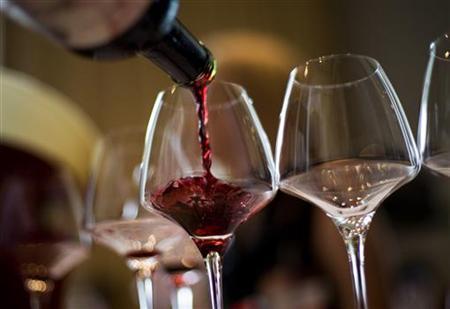Does the Bible Truly Forbid Alcohol?

The Bible forbids Christians to partake in a myriad of things, but is alcohol one of them? What does the Bible really say about the consumption of alcohol?
In a recent article in Relevant Magazine, Eternity Bible College vice president Preston Sprinkle argued that the consumption of alcohol is not explicitly forbidden in the Bible. Sprinkle drew on examples of John Calvin, who allegedly had the stipend of 250 gallons of wine a year in his church contract; of Martin Luther, whose wife was a famed brewer; and the Guinness family, who supposedly created their world-famous beer as an act of worship to Jesus. Sprinkle says that somewhere along the way, the "nectar of heaven" became "devil's libation".
"Even though some Christians advocate for the total abstinence of alcohol as a moral mandate for all believers, the Bible never requires all believers to abstain from alcohol," Sprinkle argues. "In fact, the Bible never says that abstaining from alcohol is the wisest way to avoid getting drunk. Think about it. Alcoholism has been rampant through every age, but the Bible never says that all believers should therefore refrain from drinking."
Sprinkle draws a comparison of alcohol to money, and claims that if Christians were mandated to stay away from alcohol to deter drunkeness, Christians would then have to avoid making a large amount of money to "guard against the crushing sin of materialism and the misuse of wealth."
The Bible college official feels that it's not true when believers argue that if a Christian is seen drinking he/she would ruin his/her testimony. He believes that outside of one struggling with alcoholism or witnessing to a Muslim in their home country, the potential convert would be more likely to respect the Christian for enjoying a beer with them than feel that the Christian drinking would be off-putting. "I'm not convinced that if my unbelieving neighbor sees me slipping into a pub, I will lose much traction to my Gospel witness," Sprinkles says. "In many cases, the Gospel will shine brighter when you break down wrong assumptions about Christianity by having a beer with your neighbor."
Sprinkle claims that most potential converts reject the gospel because they have rejected a "pharisaical" version of Jesus that is mostly man made. "If this is the good news we preach, then the true beauty of a crucified risen King will become covered in the fog of a man made, pharisaical 'don't drink' gospel," Sprinkle says.
Regarding the arguments that wine in biblical times were not fermented and were just "grape juice," and neither Jesus nor the writers of the Bible condoned drinking, Sprinkle says that neither of the claims can be substantiated by scripture. "If wine was really just unfermented grape juice, then did Paul warn the Ephesians 'Do not get drunk with grape juice, which is debauchery, but be filled by the Spirit?'," Sprinkle asks. "This doesn't make sense…but whatever the alcoholic content, people were quite able to get smashed by drinking too much of it." He used Proverbs 20:1 and Isaiah 5:11 to support his argument
Something that Sprinkle didn't argue, was the fact that the abuse of wine or beer was wrong. "Although a good beer and a rich wine are blessings from God, they should be consumed with caution," Sprinkle emphasized. "There's a growing tendency, however, among some younger evangelicals to celebrate their freedom without discipline." He praises the younger generation for doing all the things Christ called them to do, but also admonishes them saying "Yes God cares about the poor. He also cares about your sobriety."
Sprinkle believes that the abuse of alcohol "mocks the blood of Christ and scoffs at God's holiness." Yet he feels that a moderate, celebratory, or reflective glass of wine or beer is pleasing to the Lord.





















